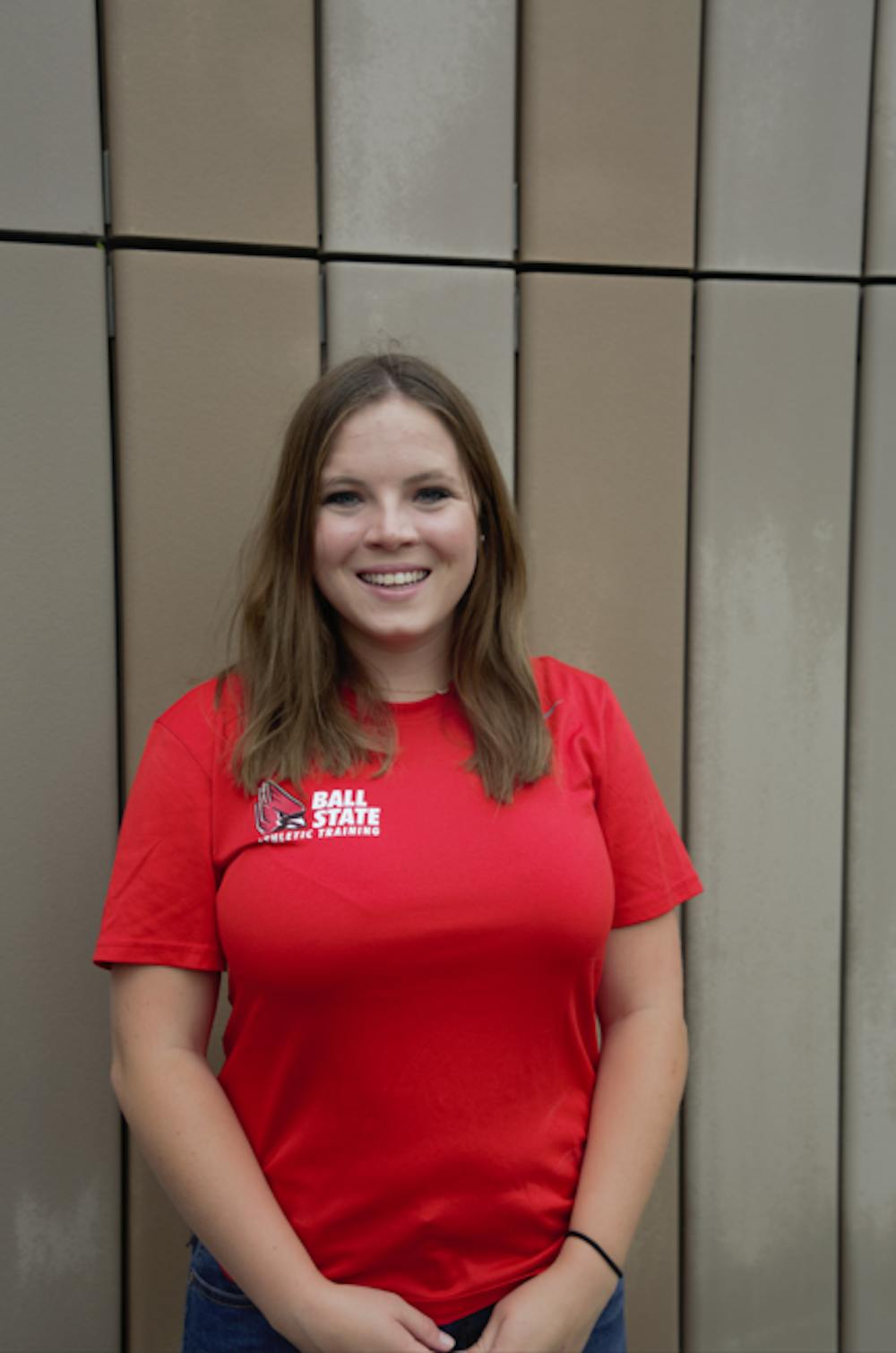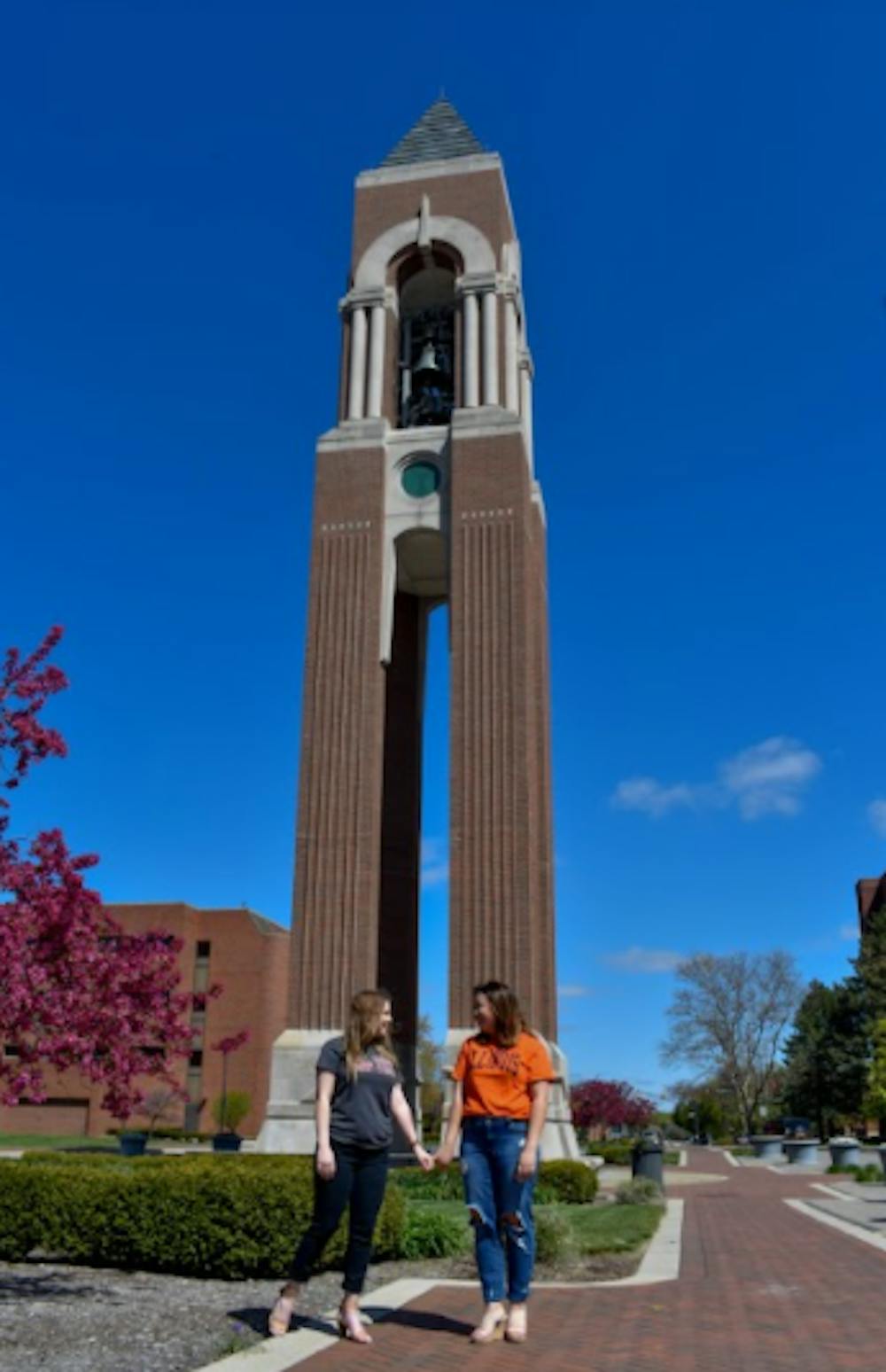What is cystic fibrosis?
Cystic fibrosis is a genetic disease that causes persistent lung infections and limits the ability to breathe over time. More than 30,000 people in the United States have cystic fibrosis, and nearly 1,000 new cases are diagnosed each year. Seventy-five percent of patients are diagnosed by age 2. Cystic fibrosis is a complex disease, and the severity of it varies from person to person.
Source: The Cystic Fibrosis Foundation
When Maddy Hamp, Ball State exercise science graduate student, first heard about COVID-19, she said, even walking outside during the early days of the pandemic scared her.
“I did not know what to expect and how quickly it would spread, so, definitely, throughout the summer, I stayed indoors, listened to the CDC and wore my mask everywhere,” Hamp said. “I was just trying to be as proactive as possible.”
Now, with COVID-19 cases rising again, Hamp is still nervous about what’s to come and how it will affect her.
“I’m going back to stay at home, only go out for class and important things I need to leave the house for,” she said. “It’s kind of stressful — it’s hard seeing a lot of people not wear their masks or follow the rules, but I’m hopeful for the future of the vaccine.”
When Hamp was about 5 months old, she was diagnosed with cystic fibrosis.
“It’s a lung disease, and it spreads through my body,” Hamp said. “It’s just a buildup of mucus, so it started in my lungs with heavy breathing, and then, it goes to my pancreas. Because of that, I take a lot of medications.”
Because of her condition, Hamp has to do a therapy called High-Frequency Chest Wall Oscillation, which is where she wears an inflatable vest that helps get rid of additional mucus in her body. According to the Cystic Fibrosis Care Center, vest treatment is recommended for most patients twice a day. Hamp also does two breathing treatments along with the vest to help her break up the mucus in her system.
The week before Gov. Eric Holcomb signed the first statewide stay-at-home order in March 2020, Hamp said she had a doctor’s appointment where she asked her doctor what she should be worried about or change within her daily routine. Her doctor told her she was already used to washing her hands frequently, taking extra precautions and wearing a mask if necessary.

Maddy Hamp poses in front of the Health Professions Building. Hamp was diagnosed with cystic fibrosis when she was 5 months old, and has take extra precautions during the COVID-19 pandemic. Maya Wilkins, DN
People with cystic fibrosis are told to wear masks on planes and during flu season when they are in busy public places, but Hamp said it was still difficult to wear a mask all the time because “it was a different feeling.” Hamp eventually received the Pfizer COVID-19 vaccine in March.
“The one big thing that did change was having to clean off everything because we didn’t know how it was transferred,” Hamp said. “I would get groceries delivered, and then, I’d have them outside, and I would sit outside with Clorox wipes and wipe them down.”
Kelsey Friis, 2021 Ball State psychology graduate, said she has known Hamp since their freshman year and found out about her diagnosis when she went with Hamp to the emergency room for something unrelated to cystic fibrosis.
“I knew a few people in middle and high school that had cystic fibrosis, and all I knew was that it was a respiratory illness,” Friis said. “Throughout our years of being friends, [Hamp] has been much more open about sharing the ups and downs of having cystic fibrosis.”
Friis said the severity of Hamp’s symptoms has improved with certain medications, and her routine to take medication takes nearly an hour to complete. In March through May 2020 — the time of the COVID-19 lockdown in Indiana — Friis and Hamp were roommates and knew any contact with the virus could have been serious for her.
Friis also said Hamp participates in medical studies whenever possible, and she goes to the doctor for cystic fibrosis a couple times a month.
“I’m glad she’s much more open about her diagnosis because she’s so much stronger for it,” Friis said.
Even before the COVID-19 pandemic, Hamp had to be open about her diagnosis with professors or athletes she worked with if she felt she could be exposed to germs or someone else with cystic fibrosis. Still, she never let that get in the way of her dreams of becoming an athletic trainer.
Hamp said she grew up around sports because her mom loved to run, her dad coached lacrosse and her sister swam. Hamp also said she played tennis growing up but tried every sport she could because she loved to exercise.
Cystic fibrosis never affected what sports Hamp could play, she said, and the worst that would happen was she would just be out of breath while she exercised, which she said she “just had to get used to.”
“In high school, I started working with my high school athletic trainer, and he really made me love what he did and really showed me the ways of athletic training,” Hamp said. “That’s when I fell in love with this. This is what I want to do — I want to be part of sports.”
Hamp said she wants to be an athletic trainer for a professional baseball team like the Cleveland Indians or a football team like the Cleveland Browns because she’s from Ohio, but she’s open to any opportunities that come her way.
Now, Hamp is finishing school and preparing to graduate in 2023, and she is doing her clinical rotations, which she thinks will help her get out of her “Ball State bubble.”
“I’ll be at a high school, I’ll be at a clinic, I’ll hopefully be at a hospital at some point, so I’m just really excited to get to know Muncie more,” Hamp said.
Friis said she has seen the ways being in Muncie has changed Hamp for the better, as Hamp has been able to grow and mature more while at Ball State.
“I’ve seen her leadership skills, confidence and empathy skyrocket during her time at Ball State,” Friis said. “She’s always been a very focused and intelligent person, so I only see her working more to make that happen in the long run.”
Contact Maya Wilkins with comments at mrwilkins@bsu.edu or on Twitter @mayawilkinss.





